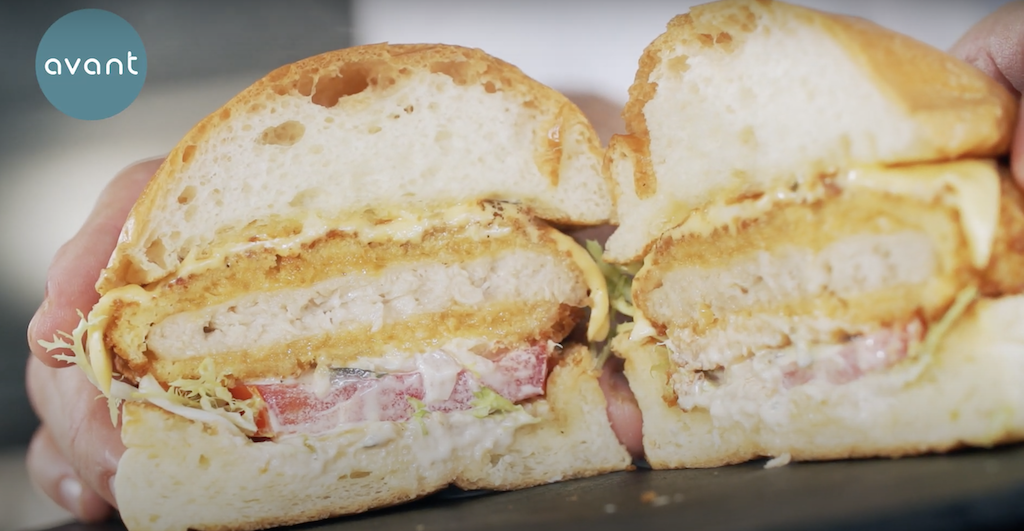3 Mins Read
Hong Kong-based cell-based food tech Avant Meats has just unveiled its cultivated fish fillet in a regional first. The cultured fish fillet grown by the startup has been showcased in a cooking demonstration led by the city’s renowned private chef and culinary expert Chef Eddy in a fried fillet burger.
Announcing the news on Wednesday (November 18), Avant Meats, Hong Kong’s only startup working on cell-based protein, has presented the region’s first fish fillet cultured directly using fish cells. In a cooking demonstration at the Asia-Pacific Agri-Food Innovation Summit, Chef Eddy, who has previously worked with Ritz-Carlton and Peninsula Hotel and currently runs private kitchen Chef Studio by Eddy, served up a breaded fish fillet burger made using Avant Meats’ cultivated product.
“Hard work turns into a yummy result,” wrote the Avant Meats team in a social media post. “Tasted and liked by meat and fish eaters.”
Unlike leading cell-based food techs hailing from the U.S. and European, such as chicken and beef-focused Memphis Meats and Mosa Meat, who pioneered the world’s first lab-grown beef burger, Avant Meats is targeting local gastronomic tastes in the realm of seafood.
Founded in 2018, the company has so far been focused on developing cultivated fish maw and sea cucumber, both prized culinary delicacies in traditional Chinese cuisine and species that are now threatened with extinction due to rising demand. Now, showcasing their newly developed fish fillet, the company has expanded to disrupt a more mainstream category of seafood.
Hard work turns into a yummy result – we presented (probably) the world’s first cultivated fish fillet! Recipe designed by our most loved chef in town Chef Eddy. Tasted and liked by meat [and] fish eaters.
Avant Meats
Read: Alt protein expert predicts that lab-grown meat will ‘scale like the internet’

Most scientific estimates say that marine populations are depleting so quickly we could be seeing most species consumed by humans going extinct by 2048, but recent figures have highlighted the urgent need for solutions to emerge due to a spike in demand from the consumer trend of choosing seafood as their choice of protein over red meats.
Avant Meats’ potential as a major food solution has been keenly watched by investors, with Asian investors in particular keen to jump on the opportunity, backing the recently launched Asia-focused Lever VC Fund I that boasts Avant Meats among its ten portfolio companies. The Hong Kong food tech is also currently in the process of finalising its fundraising round.
There are still very few companies harnessing this technology globally. Other cultivated seafood startups have debuted their own cell-based fish prototypes within the last 18 months including a trio of U.S.-based startups: Blue Nalu’s whole muscle yellow tail, Finless Foods’s in-vitro fish fillets and Wildtype’s raw sushi-grade salmon. Canada’s Cell Ag Tech and Germany’s Bluu Biosciences are working along similar lines but so far have not reached trial stage.
Read: The Most Exciting Alt Seafood Startups According To A Food Tech Investor
On top of the environmental concerns associated with the seafood industry that range from overfishing to plastic pollution, carbon emissions and bycatch, issues with food safety have also risen to the forefront amongst Asian consumers’ priorities, especially in the wake of the coronavirus pandemic and emerging aquaculture diseases like the Div1 shrimp virus with enormous potential to disrupt supply chains.
Lead image courtesy of Avant Meats.




